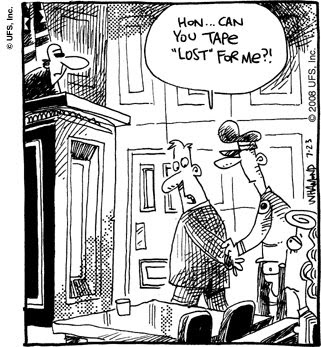
Writing in the (Salt Lake) Deseret News, Scott Pierce makes the following observation:
On multiple occasions in this column, yours truly has written that "Lost" took a sudden turn for the better.
That, once an end date was announced, the show quickly became much more watchable. Actually, that it stopped being unwatchable after a second season that drove viewers away by the millions. I'm not the only one who thinks so.
"That made all the difference in the world," executive producer Carlton Cuse said. "We now basically knew exactly how much time we had left to tell our story, and we were basically able to blast towards that ending. I think that really completely changed our storytelling approach."
I made a similar observation last year when ABC gave LOST and end date because I knew it would give the writers a time frame to work with. It’s a lot easier for the writers to tell as story when you know the story’s going to end. That gives the writers the ability to have all the pieces fit into place.
I hope the final two seasons of LOST prove to be a big success because I think all television networks should examine their hit shows and decide years in advance when to end them. That way you avoid the "ER" debacle where the show has just dragged on and on and lost any sense of what it was. (USA’s "Monk" is heading down a similar road.) It also avoids the fate of "The X-Files" where the last episode ranks as one of the worst finale of a long-running television series.
Were I in charge of a TV network, after a show has had two hit seasons, I’d sit down with the producers, creators, and head writers and figure out where the show it going and a good time frame to end it. I think that would increase or, at the very least, stabilize the number of viewers and give them a hope that their favorite TV show will have a satisfying ending.